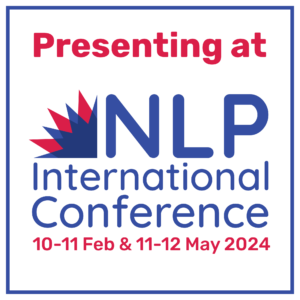Golf and NLP: Can You Use NLP To Improve Your Swing?

Golf is a notoriously psychological sport. Fitness plays a part, of course, as do talent and plenty of practice, but in the end the business of knocking a little white ball into an only slightly larger hole in the ground up to 450 yards away is about mental attitude.
With NLP being all about mental programming, it’s not surprising that many golfers turn to the discipline for techniques to improve their performance. In this brief blog I will cover three useful ones that can help you raise your game.
#1 – Positive visualisation
The first is positive visualization with anchoring. When coaching a golfer, I get them to hold one of their clubs and say something like the following to them:
“Remember a time when you did a fantastic shot and everything felt just right. Got it? Notice any pictures that come to mind. These pictures may not even relate to golf – just remember what they were. Now were there any sounds when you did this shot? Remember them.
“Were there any feelings in the body; any smells or tastes? Remember them. Keep revisiting this wonderful moment until you have both the memory of the shot and the accompanying sights, sounds and feelings very clearly in your mind. Now squeeze the club or repeat any pre-shot ritual you might have.”
Anchoring is the creation of a physical trigger that will bring back this positive state of mind whenever you repeat it.
It can be worthwhile doing this exercise with a range of clubs, as the mindset that accompanies driving off the tee, aiming for the green from 100 yards, playing out of rough or bunkers, and, of course, putting will all be different.
#2 – Prepare your state
I also train golfers to become more generally aware of what in NLP we call their ‘state’ as they are playing. One’s state is partially mental, partially physical (in NLP, we cut across the barriers between these two ways of experiencing life).
State is a mixture of pictures, self-talk and feelings in your body. Out on the course, when preparing to make a shot, you need to become aware of it. Notice what pictures you are making in your imagination; notice any negative words you may be saying to yourself; become aware of any muscle tension.
Compare this to the ideal situation you have created in the paragraph above and adjust your images, self-talk and body posture accordingly.
Most people accept their states as given. “I just felt that way,” they say. NLP teaches people to create the states they want and to deploy them at the times they want to – for example when faced with a six-footer to win the match.
#3 – Practice Without Clubs
I encourage golfers to practice without clubs. Your body and mind can be programmed by simply pretending to hit a ball and imagining it going exactly where you want it to. As with the first exercise, try using this method for a range of clubs and situations.
Keep your focus on what you did right. ‘Learning from mistakes’ is useful in conscious reflection, but does not work in this kind of mental training. Your unconscious mind can only focus on what it wants, not what it doesn’t.
If you focus on ‘not doing a bad shot’, it will get hold of the wrong end of the stick and start focusing on doing a bad shot, and make these negative things happen. Instead, regular mental rehearsals of what you want to happen make the desired event more like to happen in reality.
As famous American sports coach Vince Lombardi said, “Many have the will to win, but few have the will to prepare to win.” NLP can help you be one of those few.
Did you like this post?
Then check out our events and courses!
Where to find us
For posts, events, free open days and more, follow NLP School on:
What to read next
3 Steps to Overcoming Frustration
Improve Your Confidence With NLP









